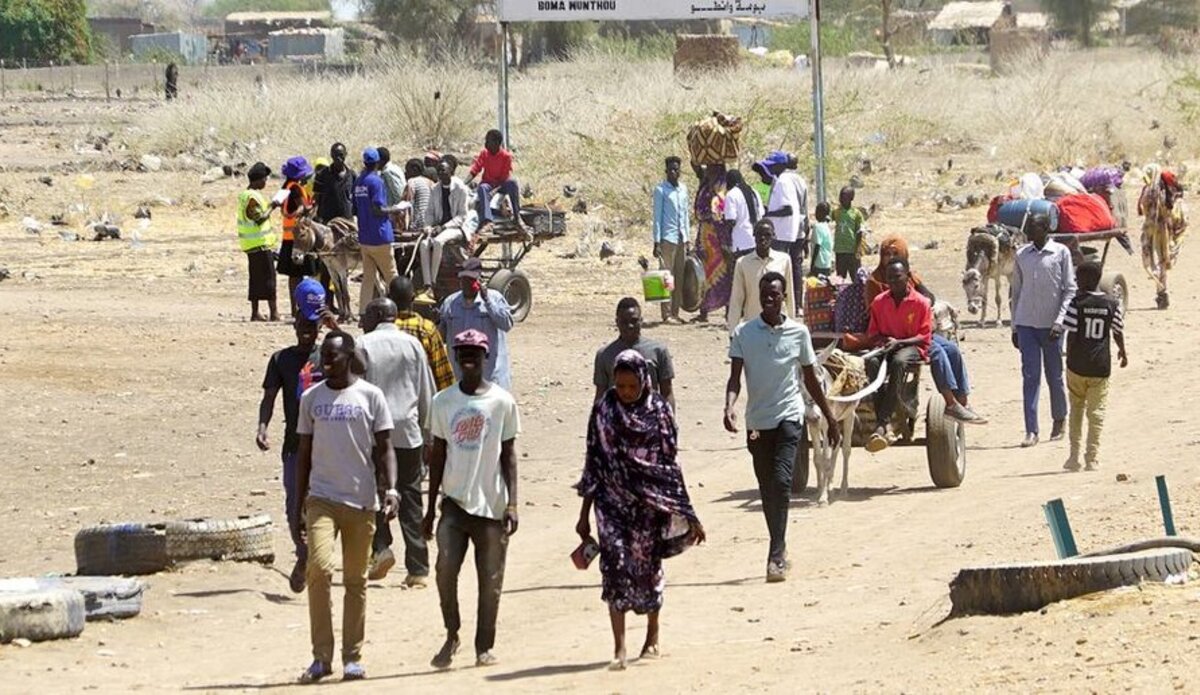
Displaced people in Renk County, Upper Nile State, South Sudan. Photo: WFP/Peter Louis
By Newsflash Reporter
The United Nations Mission in South Sudan (UNMISS) on Wednesday, 26 March, 2025 issued an urgent call for an immediate cessation of hostilities following renewed clashes in various parts of the country.
With tensions rising between the South Sudan People’s Defence Forces (SSPDF) and the Sudan People’s Liberation Army in Opposition (SPLA-IO), the UN fears that failure to de-escalate the situation could plunge the country back into full-scale conflict.
Nicholas Haysom, Special Representative of the Secretary-General and Head of UNMISS, emphasized the importance of dialogue, urging all parties to recommit to the Revitalized Peace Agreement. “To prevent a relapse into civil war, the parties must recommit to the Revitalized Peace Agreement by ceasing all hostilities, strictly adhering to the ceasefire, resolving grievances through dialogue, and reconvening as a truly unified government,” Haysom stated.
Rising tensions and recent clashes
Over the past 24 hours, heavy fighting has erupted between government forces and opposition troops near Rejaf, just south of Juba, as well as at Wunaliet, west of the capital. The escalation of violence has sparked fears that South Sudan’s fragile peace could collapse entirely.
The situation is particularly dire in Upper Nile, where reports indicate ongoing mobilization of armed groups and aerial bombardments targeting civilian areas. Witnesses claim that highly flammable explosives have been used, causing horrific casualties and widespread destruction.
Read more: IGAD Special Envoy, SSOMA hold meeting in Rome over S/Sudan
These developments mark a dangerous turn in the peace process, which has been fragile since the signing of the 2018 Revitalized Peace Agreement. While some progress has been made in forming a transitional government, unresolved tensions between President Salva Kiir and First Vice President Riek Machar continue to pose a major threat to lasting stability.
Humanitarian crisis and international response
The UN has warned that the renewed violence will exacerbate an already dire humanitarian crisis. Millions of South Sudanese are still displaced due to previous conflicts, and ongoing violence threatens to push more civilians into desperate conditions. The UN is calling for all factions to uphold their ceasefire commitments to prevent further displacement and suffering.
The African Union (AU), the Intergovernmental Authority on Development (IGAD), and other international partners are working alongside UNMISS to mediate the crisis. Diplomatic efforts are intensifying, with key players, including the Troika (United States, United Kingdom, and Norway), the UN Security Council, and regional heads of state, urging South Sudan’s leadership to de-escalate the situation.
Read more: Ruto, Mnangagwa intensify efforts to solve DRC conflict
“We encourage the President and First Vice President to lead efforts to prevent further military confrontation and restore calm by meeting to resolve differences and making a joint public statement reassuring all South Sudanese of their shared commitment to peace,” Haysom said.
A crossroads for South Sudan
South Sudan, the world’s youngest nation, gained independence from Sudan in 2011 but has been plagued by civil war and political turmoil for much of its existence. The 2013-2018 civil war resulted in nearly 400,000 deaths and displaced millions. While the 2018 peace deal offered a glimmer of hope, sporadic violence and political disputes have continued to undermine progress.
The coming days will be crucial in determining whether South Sudan steps back from the brink of renewed conflict or plunges into yet another cycle of violence. UNMISS and the international community remain committed to preventing a return to war, but ultimately, the responsibility lies with the country’s leaders to prioritize peace over personal and political rivalries




1 thought on “UN calls for dialogue in South Sudan”
Comments are closed.